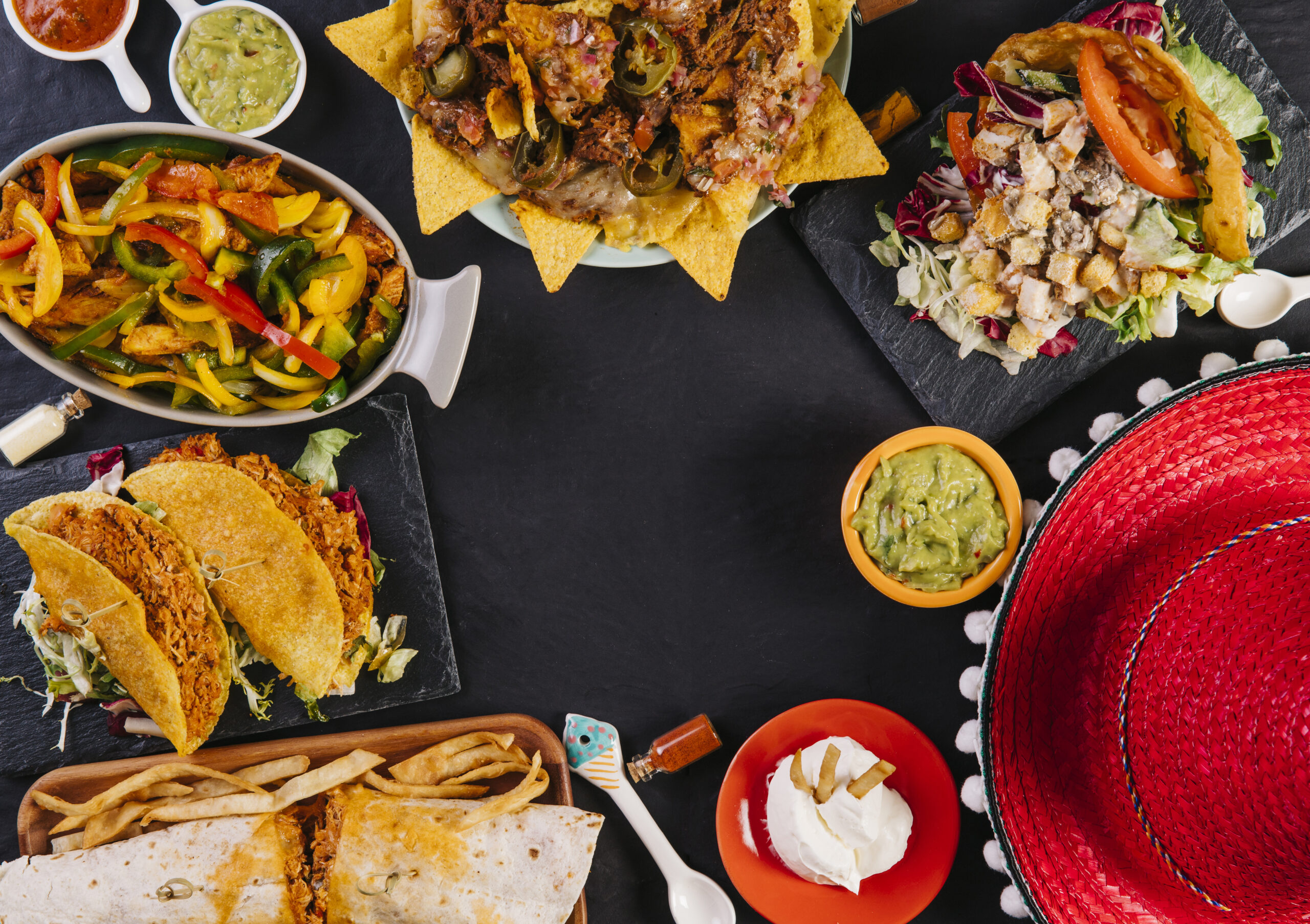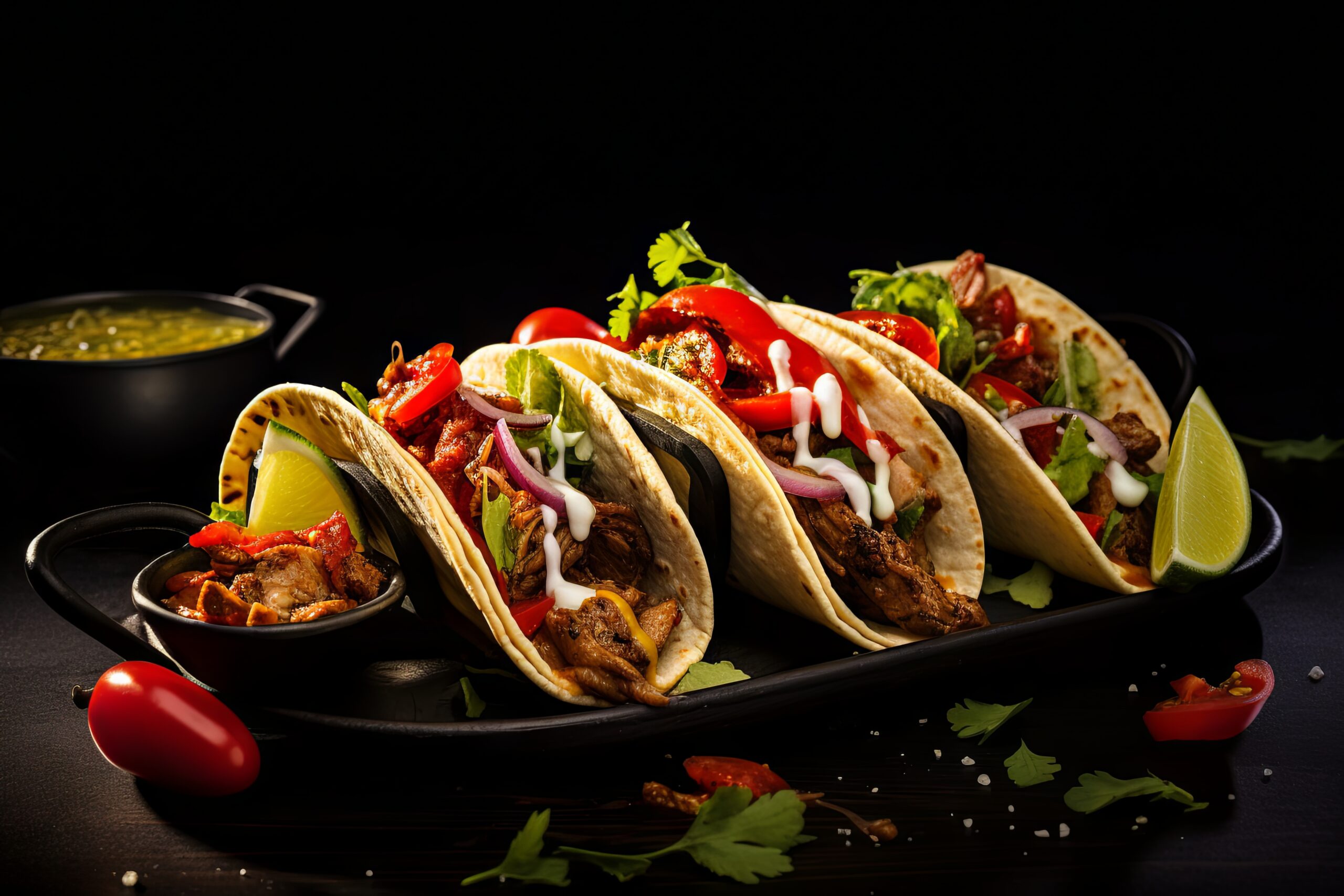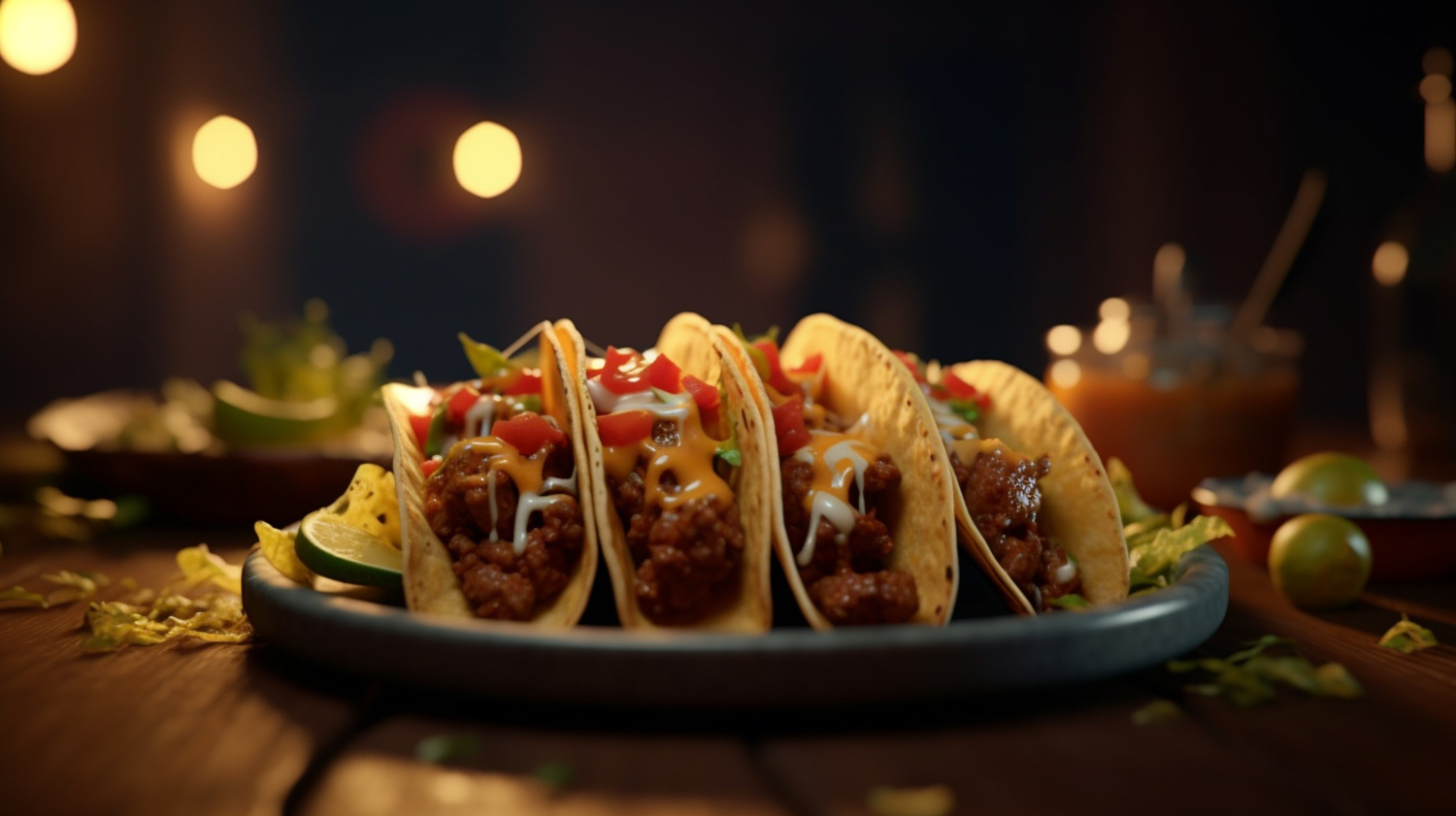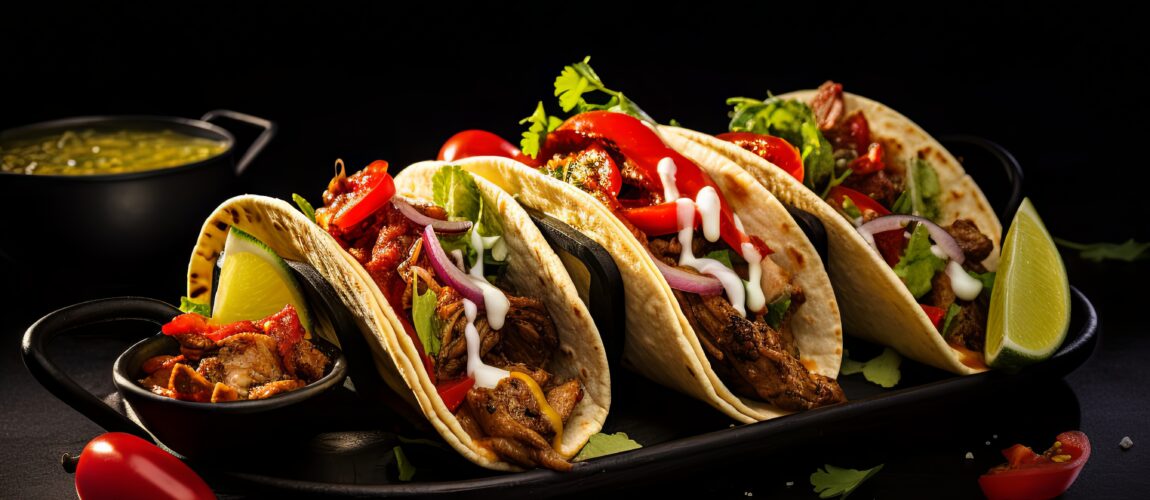Can you bring food into Mexico? Travelers often wonder about this when planning a trip to the country.
Mexico has specific regulations governing the importation of food products to protect its agriculture and prevent the introduction of pests and diseases.
While certain items like commercially packaged and sealed foods may be allowed, fresh fruits, vegetables, meats, and dairy products are generally restricted.
The key is to declare any food items you’re carrying when you enter Mexico. Failure to do so can result in fines or confiscation of the items, so it’s crucial to be informed about what is permissible.
Here what food is similar to huaraches?
What foods cannot be taken into Mexico?
When traveling to Mexico, certain foods are prohibited to prevent the introduction of pests and diseases. Fresh fruits and vegetables are generally not allowed unless they are dried or processed.
Meat and meat products, including those from beef, pork, and poultry, are restricted, especially if they are raw or not commercially packaged. Dairy products like milk, cheese, and butter may also be restricted unless pasteurized and sealed.
Homemade or unpackaged foods, such as homemade baked goods, jams, or pickles, are not allowed.
Additionally, seeds, grains, and nuts can be problematic unless they are commercially packaged and labeled.
Certain seafood, like raw shellfish, may be restricted. Honey, being an animal product, might also be subject to regulations. Always declare any food items to customs officials upon arrival to avoid penalties or confiscation.
Here, what’s the difference between sopes and sopitos?
Can I pack snacks in my checked luggage to Mexico?
Yes, you can pack snacks in your checked luggage when traveling to Mexico, but it’s important to follow the rules.
Most commercially packaged snacks like chips, crackers, cookies, and candies are allowed. These items should be in their original, sealed packaging.
However, avoid bringing fresh fruits, vegetables, and unprocessed meats, as these are generally prohibited. Homemade snacks, such as baked goods, might also face restrictions if not properly packaged.
Nuts, seeds, and dried fruits are usually permitted if they are commercially packaged and labeled.
Dairy products like cheese or yogurt may be allowed if they are pasteurized and sealed, but it’s best to check specific regulations.
Always declare any food items you are bringing on the customs declaration form. Declaring your snacks helps avoid any issues with customs, and any prohibited items can be confiscated without penalties.
What can you bring into Mexico from the US?
When traveling to Mexico from the U.S., you can bring personal items, clothing, and toiletries without restrictions.
Electronics such as cameras, laptops, and cell phones for personal use are also allowed.
Here, what’s the difference between sopes and sopitos?

You may carry a reasonable amount of medications, but it’s recommended to keep them in their original containers with prescriptions if possible.
For food, commercially packaged snacks like chips, cookies, and candy are generally permitted. You can also bring bottled or canned beverages, but alcohol is limited to three liters per person. Fresh fruits, vegetables, and unprocessed meats are usually prohibited.
As for cash, you can bring up to $10,000 USD without declaring it; anything above that amount must be declared.
Gifts are allowed but should not exceed a value of $500 USD. Always declare items like food, alcohol, and large sums of money to avoid fines or confiscation.
Can you bring food through TSA from Mexico to USA?
Yes, you can bring food through TSA when traveling from Mexico to the USA, but there are specific guidelines.
Solid foods like bread, chips, candy, and cookies are generally allowed in both carry-on and checked luggage. These items should be commercially packaged and sealed.
However, liquids and gels, such as sauces, soups, or yogurt, must adhere to the 3.4-ounce (100 milliliters) limit per container if packed in carry-on luggage. Larger quantities should be placed in checked baggage.
When bringing fresh fruits, vegetables, or meat products into the U.S., you must declare them to U.S.
Customs and Border Protection (CBP). Certain items may be restricted or prohibited to prevent the spread of pests and diseases.
Processed and packaged foods, like coffee, tea, or spices, are usually allowed but should be declared. Declaring all food items ensures compliance with regulations and avoids penalties.
What items are allowed to bring in Mexocio
When traveling to Mexico, you can bring a variety of items for personal use. Personal clothing, toiletries, and essential electronics like cameras, laptops, and cell phones are allowed without restrictions.
Prescription medications are also permitted, preferably in their original containers with the prescription.
You can bring food items such as commercially packaged snacks, canned goods, and bottled beverages. Alcohol is allowed, but limited to three liters per person, and tobacco products are limited to 200 cigarettes or 50 cigars.
If you’re bringing gifts, they should not exceed a total value of $500 USD. Cash up to $10,000 USD can be brought without declaration; amounts above this must be declared.
Here, how to pupusa different from sopitos?
Items like personal jewelry, books, and travel gear are also allowed. Always declare any food, alcohol, or large sums of money to avoid issues with customs and ensure a smooth entry into Mexico.
What items are not allowed to bring in Mexico
Certain items are prohibited from being brought into Mexico to protect public health, safety, and the environment.
Fresh fruits and vegetables, unprocessed meats, and live animals are generally not allowed unless accompanied by proper documentation. Dairy products and seeds may also be restricted.
Weapons, ammunition, and explosives are strictly prohibited unless you have the necessary permits. Narcotics and illegal drugs are banned, and bringing them can lead to severe legal consequences.
Some specific types of plants, soil, and products made from endangered species are also restricted. Counterfeit goods, pirated media, and pornography are not allowed.
Items that could harm Mexico’s cultural heritage, such as archaeological artifacts or certain antiques, are forbidden.
Additionally, large quantities of cash (over $10,000 USD) must be declared to customs, and failure to do so can result in penalties or confiscation.
Always check the latest regulations before traveling to avoid bringing prohibited items.
Restricted Items
Restricted items are goods that are subject to specific regulations and limitations when being transported across borders. These items may require special permits, documentation, or adherence to certain conditions before they are allowed entry.
Here, dog gogo mexican menu
Examples of restricted items include certain foods, like fresh fruits, vegetables, and unprocessed meats, which may carry pests or diseases.

Prescription medications might be restricted if not properly labeled or if they contain controlled substances. Some plants, seeds, and soil may also be restricted to prevent ecological disruption.
Weapons, ammunition, and certain types of self-defense tools, such as pepper spray, are often restricted and require special permits. Additionally, items like alcohol and tobacco have quantity limits.
Cultural artifacts, antiques, and items made from endangered species are subject to international regulations and may require permits.
Failure to comply with restrictions can lead to fines, confiscation, or legal action, so it’s crucial to check regulations before traveling.
Prohibited Imports by Mexico Customs
Prohibited imports are items that Mexico strictly bans from entering the country due to concerns over safety, public health, or environmental protection.
These items include illegal drugs and narcotics, which are subject to severe penalties under Mexican law.
Weapons, ammunition, and explosives are also prohibited unless you have the necessary permits, and unauthorized possession can result in serious legal consequences.
Fresh fruits, vegetables, unprocessed meats, and certain dairy products are banned to prevent the spread of pests and diseases. Some live animals and plants, especially those not accompanied by proper documentation, are also prohibited.
Counterfeit goods, pirated media, and pornography are not allowed into Mexico.
Additionally, items made from endangered species, such as certain animal skins or ivory, are banned under international conservation agreements.
Bringing in large quantities of cash (over $10,000 USD) without declaring it is also prohibited and can lead to confiscation and fines. Always check Mexican customs regulations before traveling.
Bringing food into mexico – Cancun Forum
When bringing food into Mexico, it’s important to be aware of the country’s regulations to avoid any issues at customs.
Commercially packaged and sealed foods like snacks, canned goods, and bottled beverages are generally allowed. These items should be in their original, unopened packaging to ensure they meet safety standards.
However, certain foods are prohibited to prevent the introduction of pests and diseases. Fresh fruits, vegetables, and unprocessed meats are not allowed. Dairy products may also be restricted unless they are pasteurized and commercially packaged.
Homemade foods, such as baked goods or jams, might face restrictions if not properly packaged. It’s also essential to avoid bringing in items like seeds, nuts, or grains that are not commercially processed.
Always declare any food items on your customs form. Declaring your food ensures compliance with Mexican regulations and helps avoid fines, confiscation, or delays at the border.
Any food restrictions for coming into Mexico?
Yes, Mexico has specific food restrictions for incoming travelers to safeguard its agriculture and public health. Fresh fruits and vegetables are generally prohibited to prevent the introduction of pests and diseases.
This also applies to unprocessed meats, which can carry diseases or contaminants. Dairy products, such as milk, cheese, and yogurt, are restricted unless they are commercially packaged and pasteurized.
Homemade or unpackaged foods, including baked goods and jams, may be subject to restrictions if they are not properly sealed or labeled. Items like seeds, nuts, and grains can also face limitations unless they are commercially processed and packaged.
Processed foods and snacks like chips, cookies, and candy are usually allowed, provided they are in their original, unopened packaging.
Always declare food items on your customs form to ensure compliance and avoid fines or confiscation.
9 Reasons why food is not allowed in mexico
1. Preventing Pests and Diseases
Mexico aims to prevent the introduction of pests and diseases that can affect local agriculture. Fresh fruits, vegetables, and unprocessed meats can harbor harmful insects, bacteria, or viruses that could potentially disrupt local ecosystems and agriculture.
By restricting these items, Mexico reduces the risk of introducing diseases like foot-and-mouth disease or plant pests that could harm crops and livestock.
2. Protecting Local Agriculture
To safeguard the country’s agricultural industry, Mexico restricts certain foods that could introduce new diseases or pests.
Fresh produce and unprocessed meats from other countries might carry pathogens that local crops and livestock are not resistant to. These restrictions help ensure the health and productivity of Mexico’s farming sector.
3. Avoiding Contamination
Imported foods can sometimes be contaminated with pathogens or chemicals that may not be present in local foods. By restricting certain items, Mexico reduces the risk of contamination and protects public health.
This is particularly important for foods like dairy products and unprocessed meats, which can be more susceptible to contamination during transport and handling.
4. Ensuring Food Safety
Food safety standards in Mexico might differ from those in other countries. Imported foods, especially those that are homemade or not commercially packaged, may not meet local safety standards.
Restricting certain foods helps ensure that only products that meet Mexico’s safety requirements enter the country, reducing the risk of foodborne illnesses.
5. Preventing Environmental Impact
Certain foods can have a negative environmental impact if they introduce non-native species or diseases. For example, fresh produce can carry pests that might spread and affect local flora and fauna.
By restricting these items, Mexico aims to protect its natural environment from potential ecological disturbances caused by foreign species.
6. Controlling Animal and Plant Diseases
Diseases affecting animals and plants can spread rapidly if not controlled. Imported meats, fruits, and vegetables can carry diseases that might affect Mexico’s wildlife, livestock, and crops.
By imposing restrictions, Mexico aims to prevent the introduction and spread of these diseases, which could otherwise have serious economic and environmental consequences.
7. Regulating Quality Standards
Different countries have varying quality standards for food products. By restricting certain items, Mexico ensures that all imported foods meet its quality and safety regulations.
This helps maintain high standards for food consumption and protects consumers from potentially substandard or unsafe products that may not adhere to local standards.
8. Preventing Illegal Trade and Smuggling
Food restrictions also help control illegal trade and smuggling activities. By regulating what can and cannot be brought into the country, Mexico can better monitor and control the importation of goods.
This helps prevent the smuggling of restricted or contraband items and ensures that all imports comply with legal requirements.
9. Maintaining Customs and Cultural Practices
Food import restrictions can also be influenced by customs and cultural practices. Mexico may have specific regulations to protect traditional diets and local food industries. By controlling the types of food that can enter the country,
Mexico preserves its culinary heritage and supports local food producers, ensuring that traditional foods and practices are maintained.
Rules for taking food into Mexico
When taking food into Mexico, it’s important to follow specific rules to ensure compliance with customs regulations.
Commercially packaged and sealed snacks, such as chips, cookies, and candy, are generally allowed. These items should remain in their original packaging to meet safety standards.
Fresh fruits, vegetables, and unprocessed meats are typically prohibited to prevent the introduction of pests and diseases.
Dairy products may also face restrictions unless they are pasteurized and commercially packaged.
Homemade or unpackaged foods, including baked goods and jams, might be restricted if they are not properly sealed. Seeds, nuts, and grains should be commercially processed and packaged to avoid issues.
Always declare any food items on your customs form upon arrival.
This helps ensure compliance with Mexican regulations and avoids potential fines, confiscation, or delays. Checking the latest guidelines before traveling can help prevent any issues at the border.
Related faq’s
Can I bring packaged foods into Mexico via plane?
Yes, you can bring packaged foods into Mexico via plane, provided they are commercially packaged and sealed. Items like snacks, candy, and canned goods are generally allowed.
However, fresh fruits, vegetables, and unprocessed meats are prohibited to prevent pests and diseases. Dairy products may also face restrictions unless they are commercially packaged and pasteurized.
Always declare any food items on your customs form upon arrival. Ensuring that your food items comply with Mexican regulations will help avoid fines or confiscation and ensure a smooth entry into the country.
Taking food to mexico – CAN I ?
Yes, you can take food to Mexico, but there are restrictions. Packaged foods like snacks, candies, and canned goods are generally allowed if they are commercially sealed.
However, fresh fruits, vegetables, and unprocessed meats are prohibited to prevent pests and diseases. Dairy products may be restricted unless they are commercially packaged and pasteurized.
Homemade or unpackaged foods might face restrictions. Always declare food items on your customs form to avoid fines or confiscation.
Check the latest regulations before traveling to ensure your food complies with Mexican import rules.
Taking food into Mexico
You can bring food into Mexico, but there are restrictions. Packaged and commercially sealed items like snacks, candy, and canned goods are generally permitted.
However, fresh fruits, vegetables, and unprocessed meats are prohibited to prevent pests and diseases. Dairy products may also be restricted unless they are pasteurized and commercially packaged.
Homemade or unpackaged foods could face restrictions. Always declare any food items on your customs form to avoid fines or confiscation.
It’s best to check the latest import regulations before traveling to ensure compliance with Mexican customs rules.
What can I bring into Mexico by air
When flying into Mexico, you can bring personal items such as clothing, toiletries, and electronics like laptops and cell phones.
Commercially packaged foods, including snacks and canned goods, are generally allowed. Alcohol is permitted up to three liters per person, and tobacco is limited to 200 cigarettes or 50 cigars.
Gifts valued up to $500 USD are allowed, and you can carry up to $10,000 USD in cash without declaring it.
Be cautious with fresh fruits, vegetables, unprocessed meats, and some dairy products, which are often restricted. Always declare any food, large amounts of cash, or valuable items to avoid issues with customs.
Mexico Customs prohibited food items
Mexico Customs prohibits several food items to protect agriculture and public health. Fresh fruits, vegetables, and unprocessed meats are not allowed due to the risk of introducing pests and diseases.
Dairy products are restricted unless they are commercially packaged and pasteurized. Homemade or unpackaged foods, like baked goods or jams, may also be prohibited if not properly sealed.
Seeds, nuts, and grains should be commercially processed to avoid issues. Always declare any food items on your customs form to avoid fines or confiscation.
Checking current regulations before traveling ensures compliance and a smooth entry into Mexico.
Mexico customs prohibited items
Mexico Customs prohibits certain items to safeguard public health and the environment.
Prohibited items include fresh fruits, vegetables, and unprocessed meats, which can introduce pests and diseases. Dairy products are restricted unless they are commercially packaged and pasteurized.
Weapons, ammunition, and explosives are banned unless properly permitted. Narcotics and illegal drugs are strictly forbidden. Items made from endangered species or cultural artifacts are also prohibited.
Additionally, large amounts of cash (over $10,000 USD) must be declared. Always check the latest regulations and declare restricted items to avoid fines or confiscation.
What can I bring into Mexico by car
When driving into Mexico, you can bring personal items such as clothing, toiletries, and electronics. You are allowed to carry commercially packaged foods, including snacks and canned goods.
Alcohol is permitted up to three liters per person, and tobacco is limited to 200 cigarettes or 50 cigars.
Gifts valued up to $500 USD are allowed. However, fresh fruits, vegetables, and unprocessed meats are prohibited. Dairy products may be restricted unless commercially packaged and pasteurized.
Always declare any food, alcohol, or valuable items to avoid fines or confiscation. Checking the latest regulations before your trip ensures compliance with Mexican customs rules.
What food items cannot be brought into Mexico?
Yes, you can bring food into Mexico from the U.S., but there are restrictions. Commercially packaged snacks, candies, and canned goods are generally allowed.
However, fresh fruits, vegetables, and unprocessed meats are prohibited to prevent pests and diseases. Dairy products are restricted unless they are commercially packaged and pasteurized.
Homemade or unpackaged foods may also face restrictions. Always declare food items on your customs form to avoid fines or confiscation.
Checking the latest import regulations before traveling helps ensure that your food complies with Mexican customs rules and avoids any issues at the border.
Can you bring food into mexico from us
Yes, you can bring food into Mexico from the U.S., but there are restrictions. Commercially packaged snacks, candies, and canned goods are generally allowed.
However, fresh fruits, vegetables, and unprocessed meats are prohibited to prevent pests and diseases.
Dairy products are restricted unless they are commercially packaged and pasteurized. Homemade or unpackaged foods may also face restrictions.
Always declare food items on your customs form to avoid fines or confiscation.
Checking the latest import regulations before traveling helps ensure that your food complies with Mexican customs rules and avoids any issues at the border.
Can you bring food into mexico from california
Yes, you can bring food into Mexico from California, but there are specific restrictions.
Commercially packaged snacks, such as chips, cookies, and candy, are generally allowed.
However, fresh fruits, vegetables, and unprocessed meats are prohibited to prevent the introduction of pests and diseases. Dairy products must be commercially packaged and pasteurized to be permitted.
Homemade or unpackaged foods may face restrictions. Always declare any food items on your customs form to avoid fines or confiscation.
Checking the latest regulations before traveling ensures compliance with Mexican customs rules and a smooth entry process.
Can you bring nuts into Mexico
Yes, you can bring nuts into Mexico, but they must be commercially packaged and sealed.
Nuts are generally allowed as long as they are in their original, unopened packaging to prevent issues with contamination and pests. It’s important to declare nuts on your customs form to avoid any potential problems at the border.
Homemade or unpackaged nuts might face restrictions and could be subject to inspection or confiscation.
Always check the latest regulations before traveling to ensure that your nuts comply with Mexican import rules and to ensure a smooth entry into the country.
Conclusion
Yes, you can bring food into Mexico, but it is essential to adhere to specific regulations.
Commercially packaged foods like snacks and canned goods are generally permitted.
However, fresh fruits, vegetables, and unprocessed meats are prohibited to prevent the introduction of pests and diseases.
Dairy products must be pasteurized and commercially packaged. Homemade or unpackaged foods may face restrictions.
Always declare any food items on your customs form to avoid fines or confiscation.
Checking the latest regulations before traveling ensures compliance and a smooth entry process, helping to avoid potential issues with Mexican customs.



